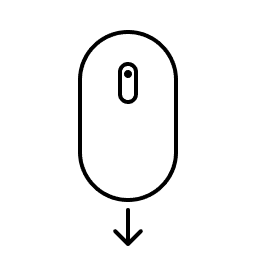Snippets about: Emotions
Scroll left and right !
Don't Look To Feelings As A Reliable Guide
Therapy often teaches kids to see their feelings as a valid and important signal. But feelings can be unreliable and manipulable, according to Dr. Yulia Chentsova Dutton. She argues emotions don't necessarily reflect reality and can lead us astray if followed uncritically.
Asking kids repeatedly how they're feeling has downsides. Dr. Michael Linden argues it inherently elicits negative responses, as most of the time we feel "just okay" while ignoring minor discomforts. Chentsova Dutton says focusing on momentary emotional states promotes an unhelpful "state orientation" vs the "action orientation" needed for achievement. For emotional regulation and success, kids need to be taught to be sometimes skeptical and dismissive of passing feelings.
Section: 1, Chapter: 3
Book: Bad Therapy
Author: Abigail Shrier
Interpreting Anger Constructively
Anger is a beautiful, transformative emotion that is mischaracterized by its shadow side, aggression. Healthy anger is important for understanding ourselves better.
Anger shows us where our boundaries are and helps us identify what we find unjust. Ultimately, anger tries to mobilize us to initiate action. It is often the peak state we reach before truly changing our lives.
The purpose of anger isn't to be projected onto someone else; it's an influx of motivation to help us change what we need to change within our lives. When we bury anger instead of using it constructively, it can cross over into aggression as we take that energy out on those around us rather than channeling it toward positive change.
Section: 1, Chapter: 3
Book: The Mountain Is You
Author: Brianna Wiest
The Power Of Emotional Validation
Validating emotions doesn't mean you agree with them or concede they're correct. It means recognizing it's human to feel things we don't always understand. This simple practice disarms people, opens them to connection, and is the first step toward progress.
When we can't validate our own feelings, we seek endless external validation through attention-seeking behaviors, drama, and complaining. This is also a common root of self-sabotage - when we have deep wells of grief, we can't relax and enjoy life until we feel validated.
To validate your own emotions, think of feelings like water running through your body. If you suppress them (turn off the valve), the pressure builds until it eventually bursts. Instead, allow yourself regular opportunities to process emotions in a safe space - through journaling, solitude, or simply permitting yourself to cry.
Section: 1, Chapter: 6
Book: The Mountain Is You
Author: Brianna Wiest
The Ghost Of My Future
When Henry learned his treatment of injectables had failed, he became despondent. "The light that had once shone brightly in my eyes was now dimmed," he wrote. "As the months went on, the isolation grew more profound." There was no more rapping and dancing in the hallways, wearing his sunglasses upside down to make the other patients laugh. He knew now. He wasn't just falling behind his peers; he was saying goodbye to the world at the age of eighteen.
By the spring of 2020, Henry and his friend Thompson were both in decline. To Henry, Thompson was not only a friend and mentor but also, as Henry once called him, "a ghost of my future." And then one morning, Thompson was gone. "My friend lost his life. And after he died, something told me: 'You are next, Henry. You are next.'" Henry felt certain that his death was imminent.
Section: 5, Chapter: 17
Book: Everything is Tuberculosis
Author: John Green
Trepidation And Hope
Of his time at Lakka, Henry wrote in his memoir, "Every morning at the break of dawn, the nurses would arrive with a tray of medications, a bitter reminder of the battle within. These pills, each with its own set of side effects, were ingested with a mix of trepidation and hope."
- John Green
Section: 3, Chapter: 11
Book: Everything is Tuberculosis
Author: John Green
The Difference Between Suppressing And Controlling Emotions
The key difference between suppressing emotions and controlling them is consciousness. Suppressing emotions is unconscious - you deny or ignore your true reaction and believe it will simply go away if disregarded. This usually leads to disruption in daily life and eventually an uncontrollable emotional outburst.
Controlling emotions, however, involves being fully conscious of how you feel while choosing your response. You're aware that you're angry, sad, or aggrieved, but you decide what to do about it. You're not controlling the emotions themselves but your behavior in response to them.
When suppressing emotions, you don't know how you feel and your behavior seems out of control. When controlling emotions, you do know how you feel, but your behavior remains within your control. Remember: emotions are temporary, but behaviors have lasting consequences.
Section: 1, Chapter: 7
Book: The Mountain Is You
Author: Brianna Wiest
Understanding Your Triggers
"Our triggers do not actually exist just to show us where we are storing unresolved pain. In fact, they show us something much deeper."
Section: 1, Chapter: 3
Book: The Mountain Is You
Author: Brianna Wiest


